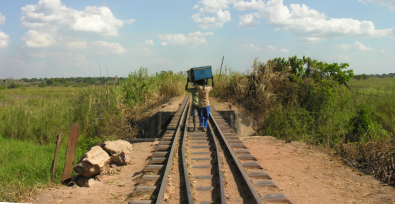The Global Slavery Index estimates that there are about 407,000 people enduring modern slavery in the Democratic Republic of Congo. In addition, 94% of the population, including women, children, and refugees are facing significant vulnerability, according to Fair Planet. With those figures, it’s no wonder the DRC has earned the title of the title of “human trafficking capital of Africa” from media and researchers.
The history of human trafficking in Congo
In the late 1990s and early 2000s, largely owing to the Congo wars, human trafficking thrived in the DRC. Armed groups like the Lord’s Resistance Army (LRA) alone abducted over 67,000 youths across the region, including 30,000 children and exploited them as child soldiers, sex slaves, and laborers.
Though the wars eventually eased, the traffickers did not. The persistent economic hardships in the DRC continued to render the population vulnerable to exploitation. Traffickers shifted their focus to illegal mining operations, forcing children and adults and into hazardous labor. Minerals like coltan and gold extracted from these mines drove global industries in Asia and Europe, and continue to do so.
Jean-Paul Kanu, an advocate for victims of human trafficking in Eastern Africa, told FairPlanet:
“Many families, driven by poverty, are coerced into trafficking schemes, making it imperative for both local and international efforts to address the root causes of exploitation and offer tangible support to affected individuals and communities.”
Recently, human trafficking in the DRC has grown more complex, with an increase in sexual exploitation. Traffickers now exploit victims through modern day schemes, such as fraudulent recruitment or fake educational opportunities on social media. Victims, mainly women and girls, are transported within the DRC or across borders and subjected to forced labor and sexual exploitation.
Addressing the challenge
The DRC’s geographical position, bordering nine countries, exacerbates human trafficking by making it a hub for traffickers operating across Central Africa. The lack of coordinated regional responses and the challenges of enforcing laws across borders complicate efforts to curb trafficking.
Kanu added:
“The DRC’s status as a major trafficking hub is a result of its complex crisis dynamics,”, “Regional instability, combined with widespread poverty, creates an environment where trafficking networks can operate with relative ease. Projects that are being introduced should aim to strengthen cross-border cooperation and enhance victim support services. Tackling this issue requires a comprehensive approach involving all sectors of society.”
NGOs and the United Nations Office on Drugs and Crime (UNODC) have collaborated with the DRC government to launch public awareness campaigns and train law enforcement to better identify and arrest traffickers and conduct raids. These efforts have led to increased prosecutions and stricter sentences for offenders. Organizations like the Children of the Congo Foundation provide vital support to at-risk children through safe houses, education, and psychological care, while also working to reunite them with their families and offer economic assistance through microfinance and vocational training.
However, financial constraints, security concerns, and logistical challenges, such as inadequate infrastructure, continue to hinder the work of NGOs. Additionally, influential traffickers and advanced trafficking networks frequently bribe police and government officials to sustain their operations. Experts emphasize that enhanced regional and international cooperation, along with stronger legal frameworks and targeted awareness campaigns, are essential to effectively combat the complex and evolving crisis of human trafficking in the DRC.







Freedom United is interested in hearing from our community and welcomes relevant, informed comments, advice, and insights that advance the conversation around our campaigns and advocacy. We value inclusivity and respect within our community. To be approved, your comments should be civil.